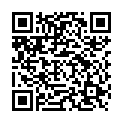|
|
|
| Module code: WIBASc-525-625-FÜ38 |
|
2V+2U (4 hours per week) |
|
5 |
| Semester: 5 |
| Mandatory course: no |
Language of instruction:
English |
Assessment:
Written exam (90 min) (80%), assignments in class (20%)
[updated 16.10.2018]
|
WIBASc-525-625-FÜ38 Industrial Engineering, Bachelor, ASPO 01.10.2013
, semester 5, optional course, general subject
WIB21-WPM-S-900 (P450-0064) Industrial Engineering, Bachelor, ASPO 01.10.2021
, semester 5, optional course, general subject
Suitable for exchange students (learning agreement)
|
60 class hours (= 45 clock hours) over a 15-week period.
The total student study time is 150 hours (equivalent to 5 ECTS credits).
There are therefore 105 hours available for class preparation and follow-up work and exam preparation.
|
Recommended prerequisites (modules):
None.
|
Recommended as prerequisite for:
|
Module coordinator:
Prof. Dr. Petra Garnjost |
Lecturer:
Prof. Dr. Petra Garnjost
[updated 28.08.2025]
|
Learning outcomes:
At the successful conclusion of this course the students will:
• articulate the variables in successful and effective teams,
• be able to identify dysfunctions in teams and provide solutions,
• have an understanding of their roles and behavior in teams,
• have knowledge of the building theories of leadership,
• understand the role of leadership in the management process,
• have knowledge of the skills, knowledge and attributes of successful leaders, as well as
• an idea to improve and broaden their leadership skills.
[updated 16.10.2018]
|
Module content:
The course explores teamwork skills in work organizations and effective leadership behavior. Students will engage in the enhancement of their own skills in these areas combined with the study of empirical findings and classic and contemporary models of leadership and group dynamics.
Team Management
1. Team Analysis
2. Team Development
3. Decision Making in Teams
4. Negotiation and Conflict
5. Multicultural Teams
Leadership
1. Introduction to Leadership
2. History of Leadership
3. Emotional Intelligence
4. Transformational Leadership
5. Global Leadership
Individual leadership behavior
1. Self-Assessment
2. Personal Development Plan
[updated 16.10.2018]
|
Teaching methods/Media:
Material to prepare for class (videos, articles, presentations) will be available on Clix prior to each session.
Various interactive methods are used in class (team exercises, presentations, case studies, group discussions, self-assessments)
[updated 16.10.2018]
|
Recommended or required reading:
Brett, J., Behfar, K., & Kern, M. C. (2009). Managing multicultural teams. The Essential Guide to Leadership, 85.
Collins, J. (2007). Level 5 leadership. The Jossey-Bass reader on educational leadership, 2, 27-50.
DuBrin, AJ., Leadership: Research findings, practice and skills (8 ed.). Cengage Learning, Boston, MA 2016. ISBN 978-1-285-86636-9
Eisenhardt, K. M., Kahwajy, J. L., & Bourgeois III, L. J. (2009). How management teams can have a good fight. Harvard Business Review Press.
Frisch, B. (2008). When teams can’t decide. What Makes a Decisive Leadership Team, 2.
Goleman, D., Boyatzis, R. E., & McKee, A. (2013). Primal leadership: Unleashing the power of emotional intelligence. Harvard Business Press.
Kotter, J. P. (2007). What leaders really do. Harvard Business Review, 68(3).
[updated 16.10.2018]
|

